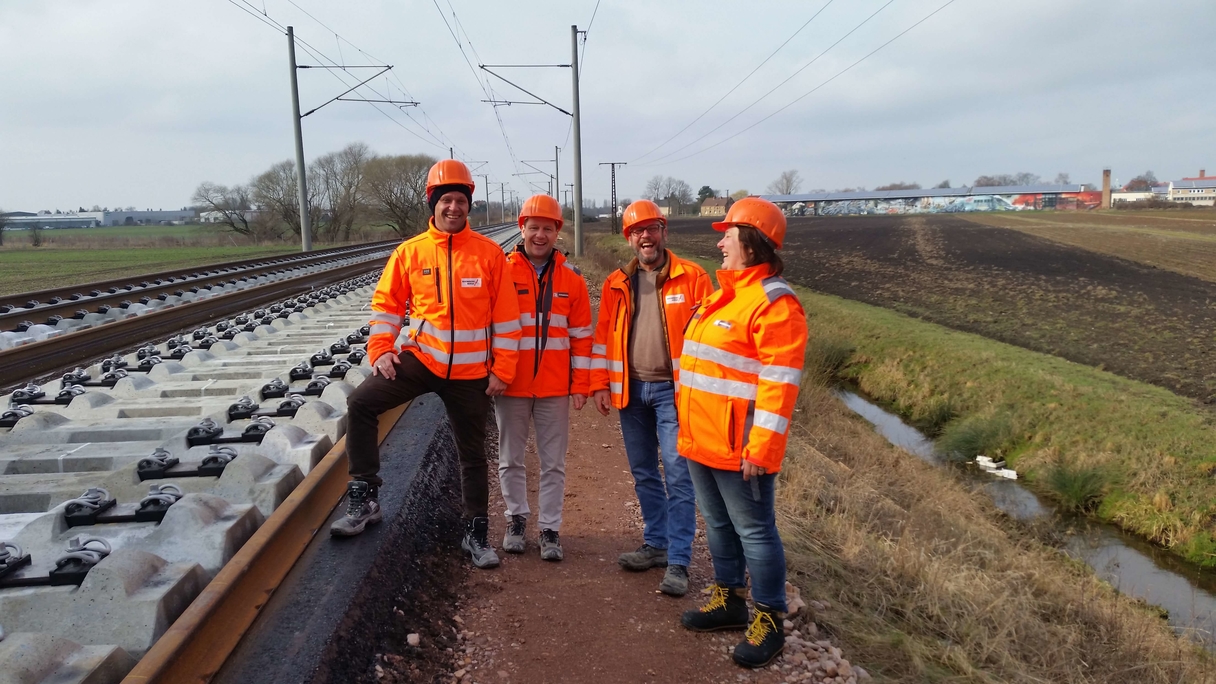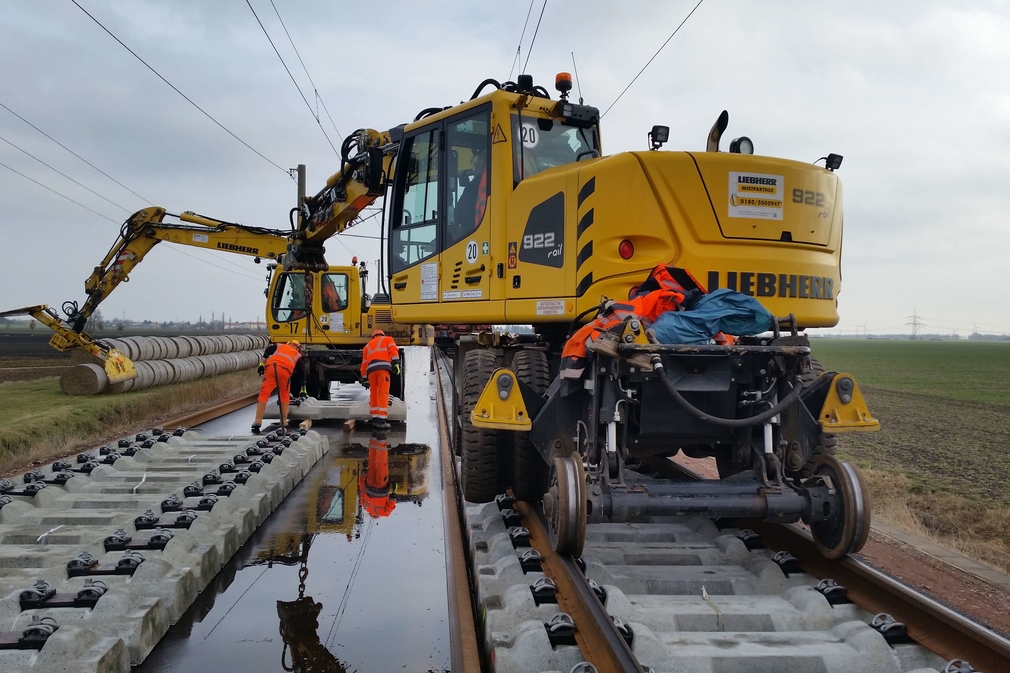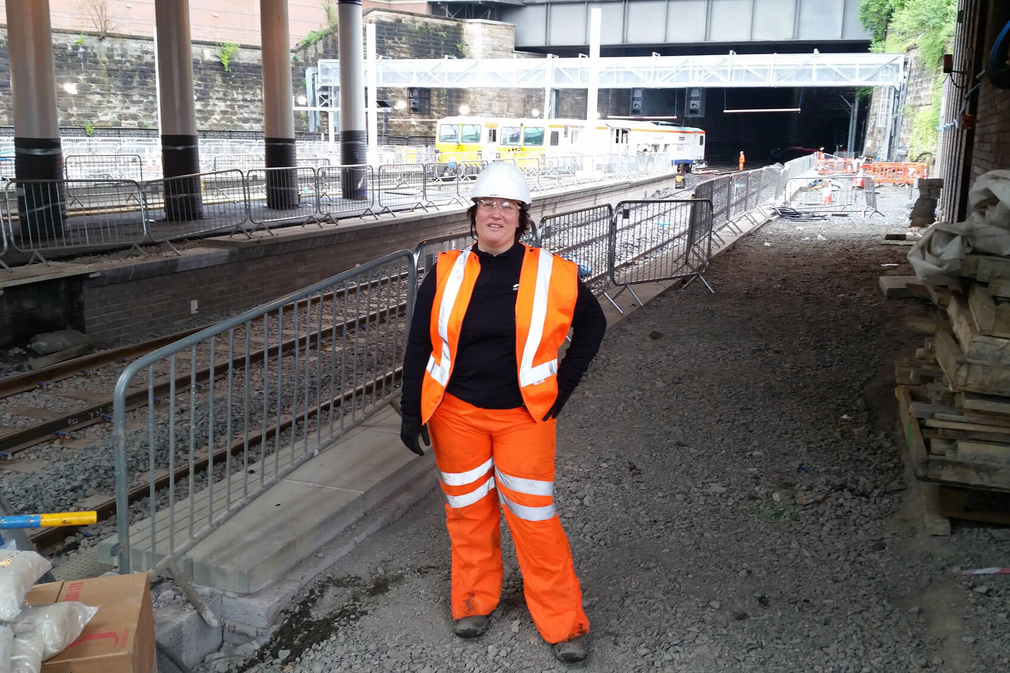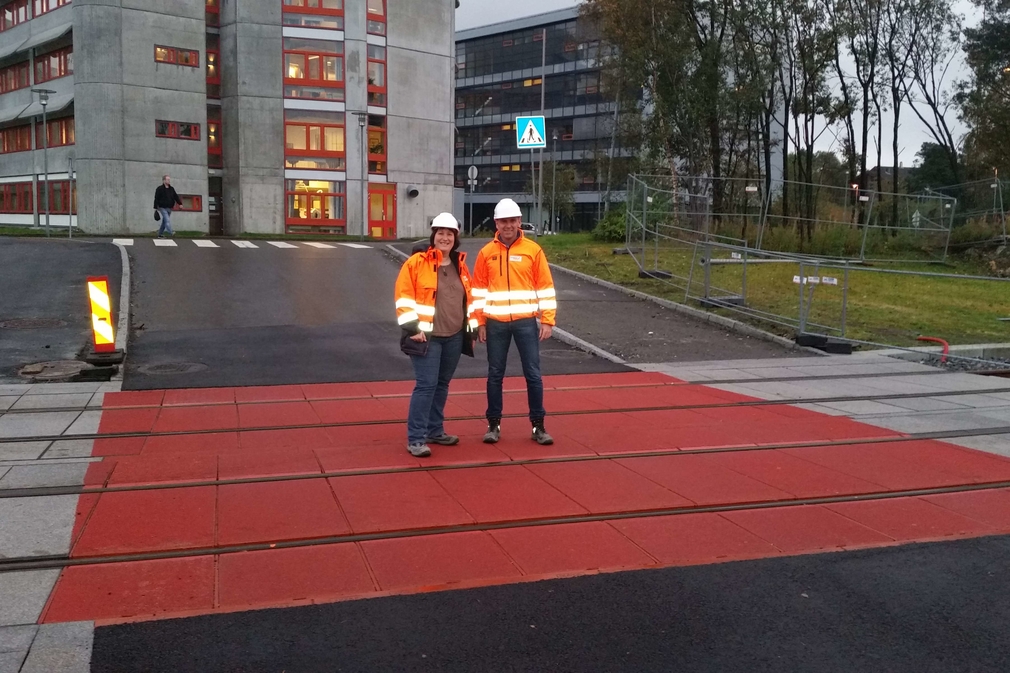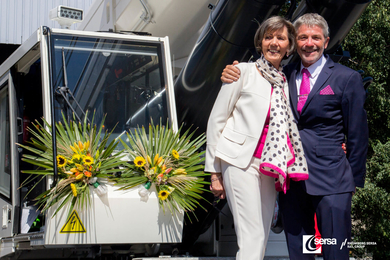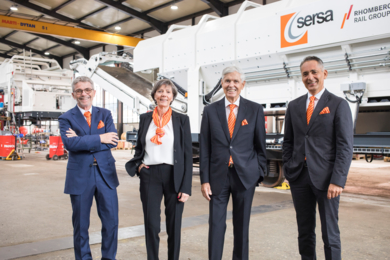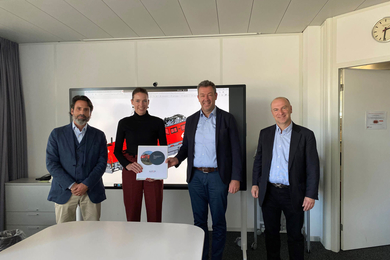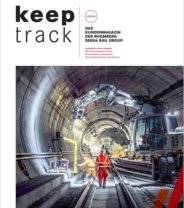10 Years of the Rhomberg Sersa Rail Group, as recounted by Selma Hagen, Managing Director Project Business/ Rhomberg Bahntechnik, responsible for the commercial management of project business in the group; with the company since 2003.
I have been with Rhomberg Bahntechnik since its foundation in 2003. At the time of the merger between Rhomberg and Sersa, I had just gone on maternity leave. When I returned to the company, I did not notice any difference at first, as we had already worked together with Sersa on projects before.
Fundamentally, the project business and the machinery contract business, which have come together under the umbrella of RSRG, have different requirements. A different mindset is required in the project business. The site manager on the construction site often spontaneously needs to take over responsibility and make a decision about what needs to be done. As much as one can plan for a project, one never knows what will happen during the course of a day. In our flexible, uncertain, complex and ambiguous world, the challenges are big and decision-makers must be agile. In the project business, we need people who like taking on responsibility and are also “slightly mad”.
Sending up a trial balloon
One year after the merger, we started an internal consortium with Rhomberg Sersa UK. It was a type of “trial balloon”. Would the collaboration with mixed teams of site managers and site foremen from Rhomberg and Sersa work out in construction projects? Naturally, there was a bit of distrust in the beginning. At one point, when there were some bigger discussions regarding invoices in the consortium partnership, I flew to the site to discuss and disclose everything in person. The crucial point for resolving the matter was the realisation on both sides that we both want to complete the project successfully. After this first trial phase, we realised that it is helpful to lay down the ground rules in the sense of: “We can become even better if we take this and that into account.” Now, Rhomberg Sersa UK completes medium-sized projects on its own. We hope that the next big challenge for us will be the HS2, the planned high-speed railway line from London to Birmingham, which is currently in the tender phase.
In these ten years we have developed into a good team. This is evident from the fact we can work through challenging issues on an equal footing. An example is the current preparations for the tax audit in the project business in Switzerland. Working hand in hand with the financial department of the Swiss market, we are professionally preparing all our data for the audit.
Success factor: employees with unique character
I see the decentralised organisation of our markets on the one hand and on the other hand, the “big mama” (the group) in the background as reasons for our success. Small ships are more agile than large, centrally steered ship. I see our employees with a long service record as an additional success factor. All of them are there with heart and soul and most have their own unique character, which makes it all very interesting. I hope that we will also be able to attract such people in the future. The number of employees in the project business has doubled in the last few years - this means that we first have to manage the onboarding so that our “BIG 6” values are also lived in the day-to-day work.
Women in the construction industry
Well, women at the forefront are few and far between in our company, but that is generally the case in the construction industry. In my opinion, the glass ceiling will only be broken once there is a complete role reversal in the family. Only when men take up their responsibilities in the family to the same extent as women, for example, working part-time for a few years, will it be possible that more women can take up leadership roles. In some countries, such as Denmark or Iceland, these models already work and are better than in the still very conservative DACH region. The issue of women in companies is an issue of partnership; it is up to society to bring about change in this regard. Here, companies can only offer the respective framework conditions, as is the case with us.
The division between contractor and customer has disappeared
My vision for the year 2032? I receive all the financial data I need with the push of a button. Digitisation makes it possible to meet the increasingly complex challenges in a globalised, networked world. Invoices are only sent and received via encrypted portals; nothing is sent by post anymore. Banks and financial partners are extremely networked, partly due to the issues of carbon sustainability.
In the project business, the division between contractor and customer has disappeared. We work according to cooperation models, which have become the standard contract model for us. Because we have started so early with these models, we have a competitive edge. The models are already in use in different countries within our group.
How did we manage to achieve such quick acceptance for the cooperation models? We all had to admit to ourselves that in the long term, we cannot go on like we did before. People, especially the youth, want interesting work and the employer has to be appealing. They do not want to argue about details - they want to build.
